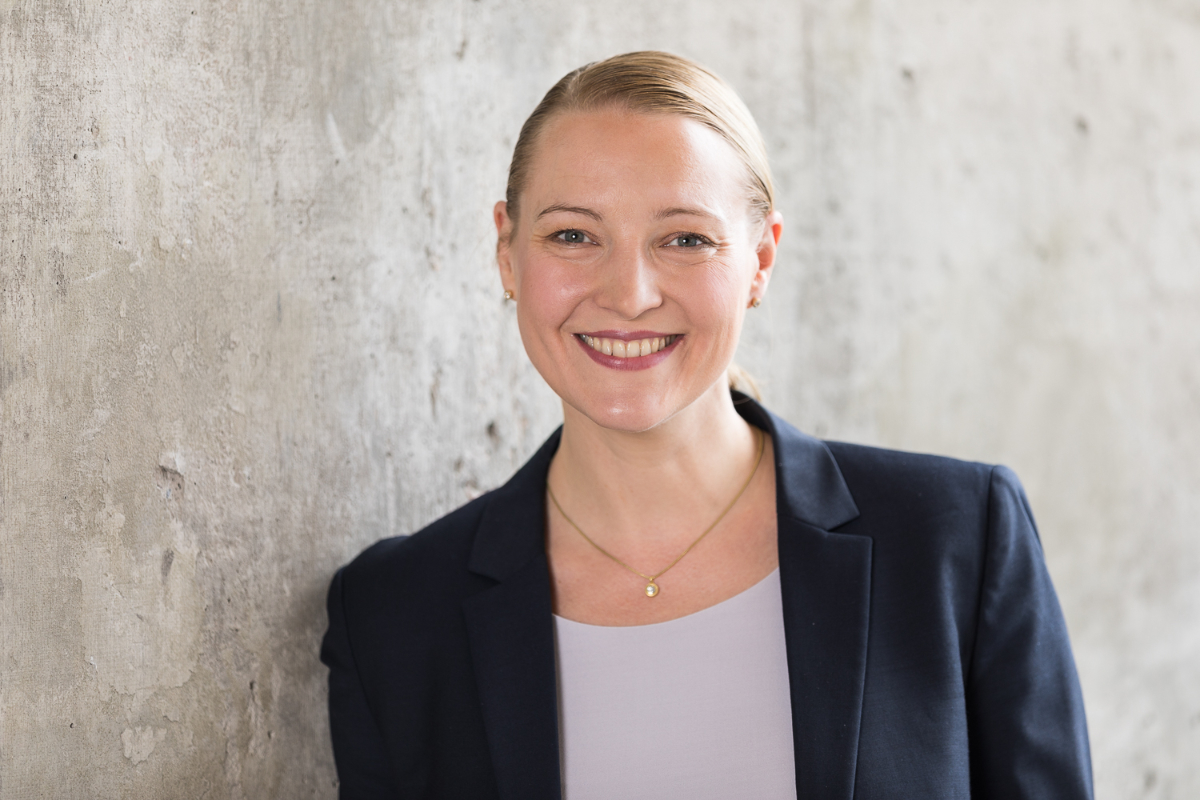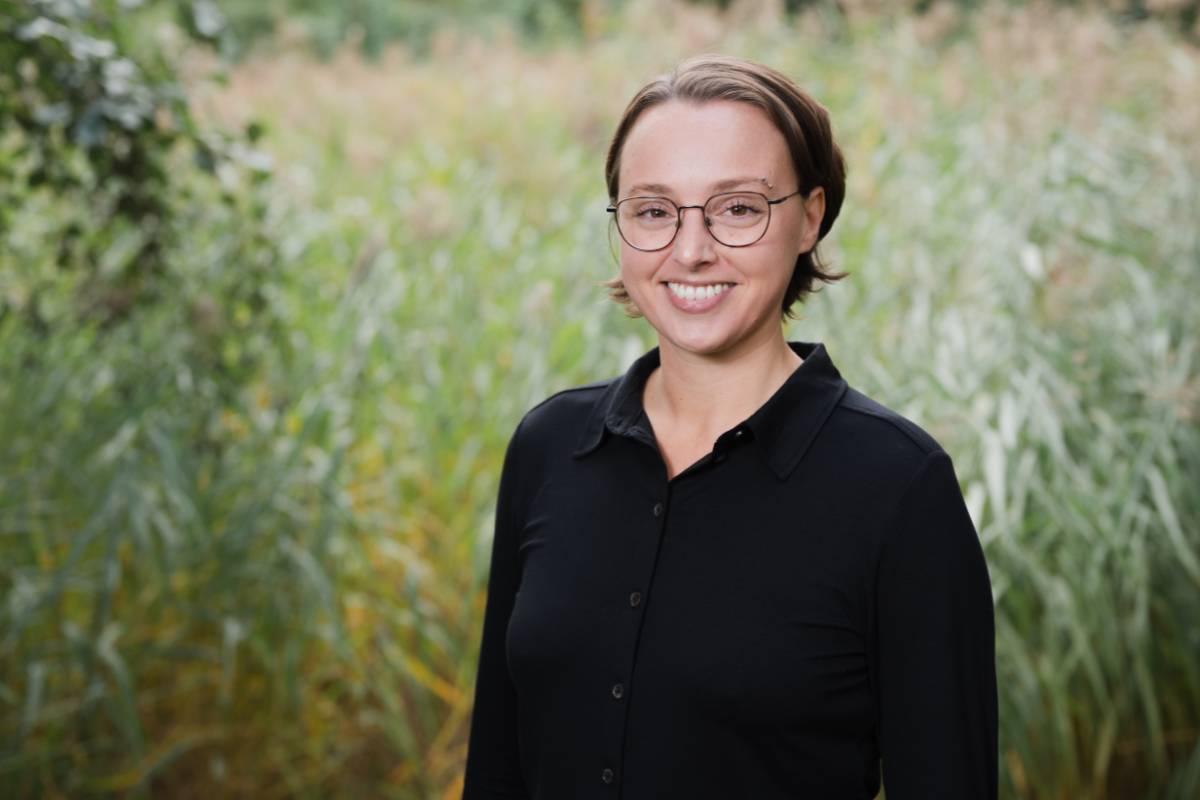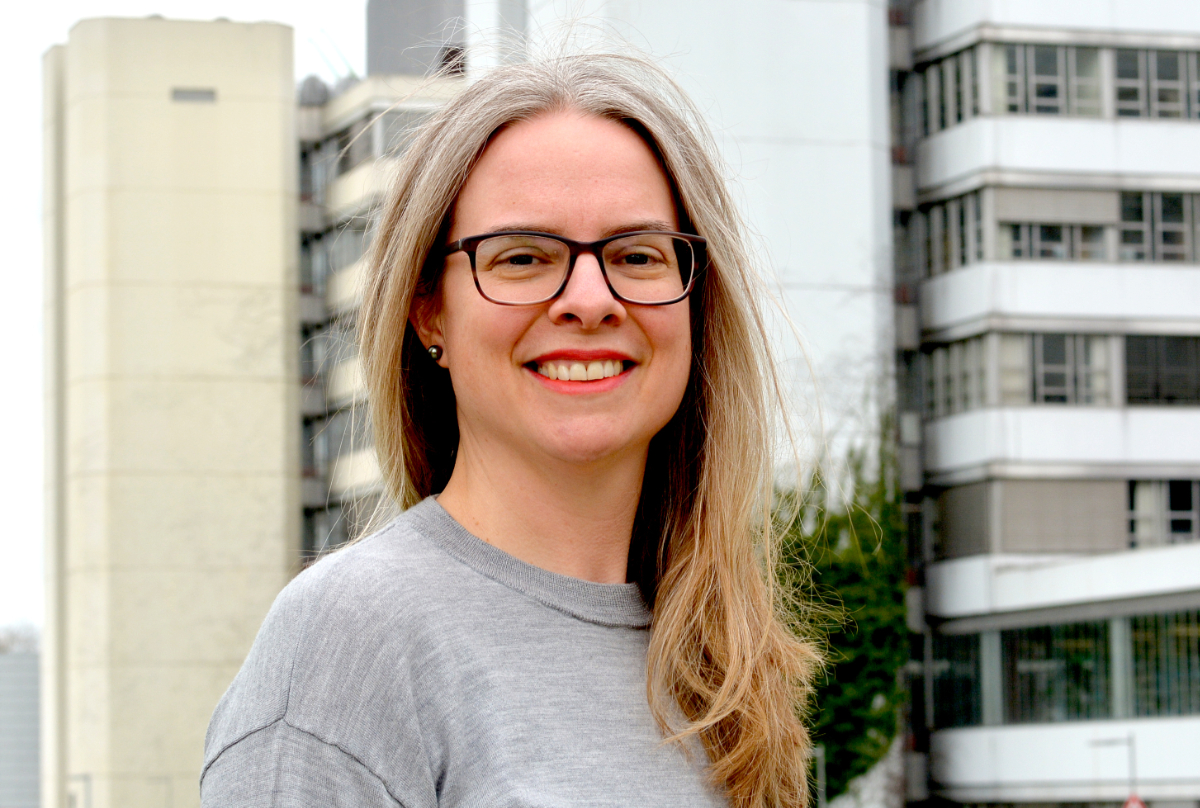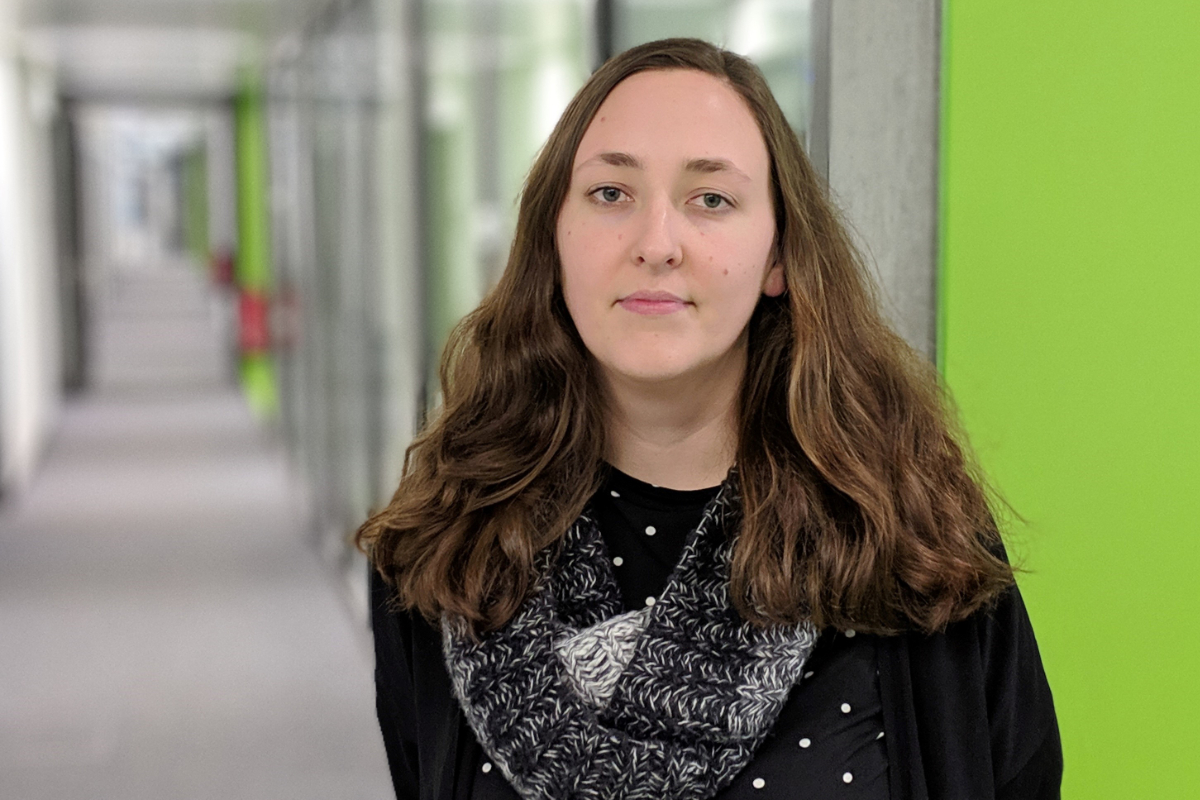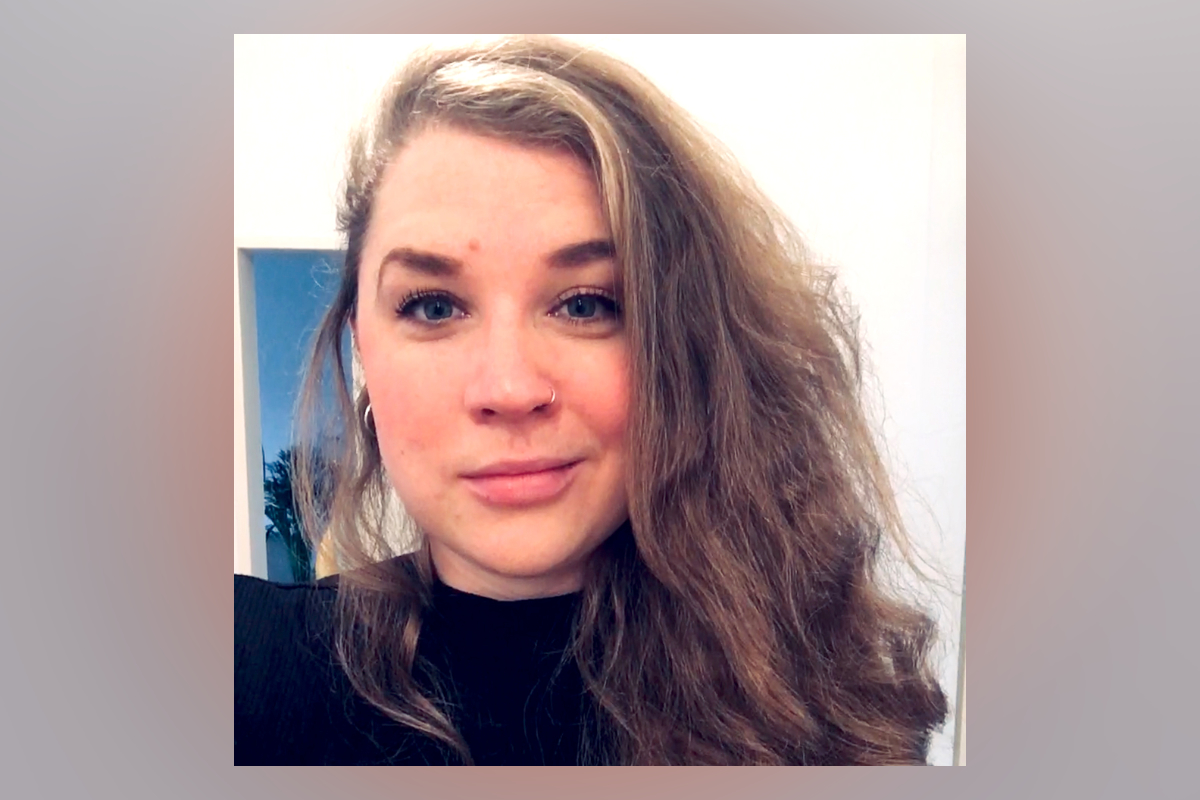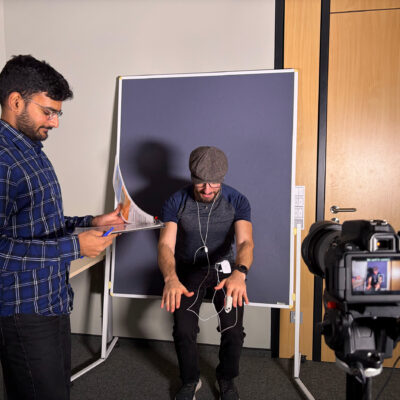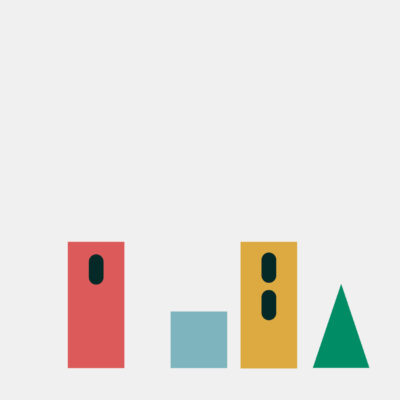In June, the spotlight is on the LGBTQI* community: the abbreviation stands for lesbian, gay, bisexual, trans*, queer and intersex. It covers all people who do not feel they belong to the bisexual or heterosexual norm. June is Pride Month, so this month’s actions and events are specifically aimed at raising LGBTQI* people’s self-esteem and the respect shown towards them. A number of disciplines at Bielefeld University are studying issues relating to the LGBTQI* community. Five researchers and their topics.
Creating a legal framework for diversity in parenthood
Dr Anne Sanders is professor of Civil Law, Business Law, the Law of Family Businesses and Judicial Studies. Her research includes studying new family forms.
In her research, Professor Dr Anne Sanders looks at new family forms. ‘Our world has become much more colourful over the past 40 years. Yet for LGBTQI* people, legally speaking starting a family is still not as much a given as it should be,’ she says. Her research contributes to the German federal government’s current discussion on these topics.
The legal scholar’s particular focus is on the immediate co-parenting of women, especially those who are married to each other. ‘In an opposite-sex marriage, the husband automatically becomes the father of any child the wife gives birth to, regardless of whether he is the child’s genetic father,’ she says. Legally, he also becomes a father if a sperm donor was used. ‘However, this does not apply if both spouses are women—even if one woman gave birth to the child and the egg of the other was used to conceive the child.’ The woman who did not give birth to the child has to adopt it.
Another topic of discussion is the challenging ethical issue of surrogate motherhood. ‘Surrogacy is possible in many countries outside Germany, but it is a criminal offence in Germany,’ says Anne Sanders. For this reason, German couples head abroad to fulfil their desire to have children. This raises the question of exploitation of economically weaker women and is only open to rich couples. ‘Legalising surrogacy in Germany could potentially allow all parties to be protected through appropriate procedures.’ Politicians and legal scholars are also addressing what are known as ‘rainbow families’. Children in these families come, for example, from lesbian and gay couples partnering up to have a child. According to Sanders, parenthood for trans* people is also being discussed. This is about people being recorded as mother or father in their children’s documents, even if this may not correspond to the gender they identify themselves with.
How sounds and bodies are gendered
Holly Patch is doing her PhD at the Bielefeld Graduate School in History and Sociology (BGHS). She studied gender studies and is a member of the ZiF ‘Global Contestations of Women’s and Gender Rights’ research group’.
Holly Patch is looking at how trans* people experience singing in a choir: ‘I’m interested in how vocal sounds and bodies are gendered and what singing together enables trans* people to do,’ she says. The PhD student has a degree in gender studies and studied classical singing a few years ago. ‘Given my interdisciplinary background, I felt compelled to contribute a slice of knowledge production to trans* studies, voice studies, gender studies, and sociology,’ she says. ‘I also find value in highlighting the joy these trans* singers experience when rehearsing and performing together in a trans* choir.’
At the moment, trans* people are under massive attack in the USA and partly also in Germany. According to Patch, the attacks are directed at access to healthcare and inclusion in society. ‘The attempts of the right wing to secure political power are extremely dangerous for trans* people and are part of an anti-liberal agenda that has far-reaching repercussions, not just for LGBTQI* people.’
Addressing the health needs of the LGBTIQ* community adequately
Dr med. Sabine Oertelt-Prigione is a professor at the Medical School OWL and heads the Sex- and Gender-sensitive Medicine research group.
Professor Sabine Oertelt-Prigione’s research and teaching projects on gender-sensitive medicine always consider LGBTQI* people. Communication represents a particular care need of this population group. ‘LGBTIQ* people consistently report difficult and sometimes traumatic experiences interacting with healthcare workers,’ she says. In order to ensure the best possible treatment, it is mandatory to address all people without discrimination and to include their lived experiences in our care practices.
In recent years, according to the professor, studies addressing the health needs of the LGBTQI* community have been carried out mainly in Canada and the USA. There are also similar endeavours in Germany. However, this is sometimes not so easy due to the lack of data: ‘The groups in question are sometimes relatively small and often very heterogeneous. That is why it is challenging for medical researchers to set up adequate studies in such cases,’ says Oertelt-Prigione. ‘However, rather than being a criterion for exclusion, this should be a methodological challenge that can be met.’ For example, sexual orientation is not usually asked in studies, so as not to stigmatise people. ‘Even though this is well-intentioned, as a result, detailed information about the specific health needs, opportunities, and risks of the LGBTQI* community is lacking so far.’
Improving data on the LGBTIQ* community in the population
Lisa de Vries is a doctoral candidate, research fellow, and member of Professor Dr Martin Kroh’s Empirical Social Research with a Focus on Quantative Methods research group. Together with colleagues, she has collected socio-economic data on LGBTQI* people in a research project, funded by the German Federal Ministry of Education and Research.
Lisa de Vries is looking at career opportunities for LGBTQI* people. ‘For example, I look at whether lesbian, gay, and bisexual people work more often or less often in higher professional positions with workplace supervisory authority, whether they are employed in certain industries, and to what extent they try to avoid discrimination with their career choice,’ she says. The results that she and her colleagues have collected have been incorporated in the German federal government’s most recent family report, for instance.
The researcher and her colleagues are also working on collecting data on LGBTQI* people. ‘Although the data situation has already improved, there is still a lack of even basic data on the LGBTQI* population, such as the proportion of trans* people or non-binary people in the German population,’ she says. There are often difficulties with the collection of data: for example, many standardised surveys measure gender in the categories male and female. ‘So trans*people and non-binary people are not represented at all in a lot of surveys,’ says de Vries. ‘We are testing different ways of measuring gender and sexual orientation.’
Making queer figures visible in literature
Patricia Bollschweiler is a doctoral candidate and research assistant at the Faculty of Linguistics and Literary Studies. She is also an associate member of Bielefeld University’s ‘Experiencing Gender. Constitution and Transformation of Being in the World’ Research Training Group.
Are queer characters in literature a phenomenon of the 21st century or did they exist much earlier? ‘The term “queer” is understood to mean people who do not conform to the heterosexual, binary norm in their gender identity or in their desire. What is important here is that the term is both historically, and to this day, a self-designation. It is therefore very open and provides many people with an identification option. The thesis of my project is that queer identities existed in narrative literature long before queer became a term of gender studies, sociology, and even literary studies—and the narrative texts thus provide important impulses for precisely these theoretical considerations,’ says Patricia Bollschweiler. In her thesis, she is examining queer literary figures thematically and in terms of narrative theory.
‘This is also about showing the diversity of gender, which with the particular aesthetic freedoms in literature can take on a very variable form and can also be reflected in the narrative, in other words, in the way it is expressed,’ says Bollschweiler. When queerness is portrayed, it leads to insecurity and to supposedly stable gender concepts becoming fragile.
In her work, the academic wants to show how queerness is also expressed narratively in literature and which narrative procedures are used in the process. ‘Of course, the historical, political and socio-cultural conditions also play a role,’ she says. That being said: ‘Queerness is not a question of epoch, trend, nation, and national philology, but can be understood as a literary procedure and therefore belongs at the centre of a gender-sensitive re-reading of literature.’ With this in mind, she is analysing a series of narrative texts from different epochs and languages, for example by Honoré de Balzac, Virginia Woolf, or Sasha Marianna Salzmann. She presents one of her analyses in the online journal of the Interdisciplinary Center for Gender Studies.

